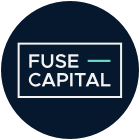Recently, a series of high-profile share buybacks have made headlines globally in part driven by low-interest rates.
You may think that share buybacks are typically associated with listed companies, including tech giants such as Apple, Google, and Microsoft.
But here’s the thing, companies of all sizes may at some point find themselves in a position where they’ll need to repurchase shares.
So, if you’re wondering, “can a private company buy back its own shares?”, the answer is yes! Read on to find out why, how, and discover the advantages.
What is a share buyback?
According to Investopedia, “Share buybacks refer to the repurchasing of shares of stock by the company that issued them. A buyback occurs when the issuing company pays shareholders the market value per share and re-absorbs that portion of its ownership that was previously distributed among public and private investors.”
Why would a private company buy back shares?
There are several reasons why a private company buys back its own shares.
Shareholders can sell their shares back to other existing shareholders or owner managers and gain a clear exit route out of the company.
It can also be used to clean up the existing capital structure, return surplus capital to stockholders, and increase the profit per share.

What type of finance is available to fund a share buyback?
There are four different types of finance available to facilitate an equity buyback:
- Private debt bridging loan – Like a traditional bridge loan, a private debt bridge loan is a short-term loan that provides companies with immediate cash flow/capital.
- A partial cash-out – If you’re not overleveraged and cash positive, you can use private debt to fund a cash-out of your business to buy out your longtail investors.
- Growth Loan – For a company showing excessive growth, can be used to buy out early-stage investors to maximise long-term capital.
- Mezzanine – If you’re wondering how to model mezzanine debt, understand that it can be structured as unsecured or as preferred stock.
3 reasons you should do a leveraged buyback with debt
We often get asked, “Can a company borrow money to buy back shares?” The answer is yes! Here are some of the main reasons why using debt to buy back shares makes the most sense:
- You decrease your reliance on equity, and therefore reduce dilution.
- Interest payments on debt are tax-deductible which also reduces your cost of capital.
- Investors often see it as a positive move as it typically increases value for shareholders.

The legal elements of a share buyback
We asked corporate lawyer Jas Bhogal of Harper James Solicitors to explain what you need to consider when using debt to buy back shares.
About Jas Bhogal: Jas is a corporate solicitor. She advises primarily on investment matters, working almost exclusively with high growth potential SMEs, along with venture capitalists and other investment platforms. Jas also advises on corporate governance and general day-to-day corporate/commercial matters.
“Legal advice should be sought if you are considering a buyback of equity shares,” says Jas. “It is important to ensure that you are fully compliant with the relevant statutory provisions and any contractual obligations set out in your company’s documents.”
Jas added: “Any company proposing to buy back any of its shares needs to consider some factors including the following:
- Articles of Association: A company’s articles of association must not obtain a restriction on the buyback of shares; otherwise, the articles of association will have to be amended to remove the restriction.
- Shareholder consent: The company will require its shareholders’ to approve an equity buyback by passing an ordinary resolution – being the consent of the holders of more than 50% of its issued share capital.
- Price of shares to be purchased: There are no minimum or maximum price limits in respect of the price payable for the shares, but the directors of the company should be aware that they are required to comply with their common law and statutory duties.
- Companies must comply with the statutory provisions relating to a buyback of shares as set out in the Companies Act 2006, which includes detailed processes to be followed concerning how the buyback may be structured.
- Tax advice should be sought to ensure that the buyback of shares does not have any tax consequences to the existing shareholders concerning any tax reliefs they are claiming.
How to buy back shares in a private company
Whether you are seeking a share buyback to facilitate a shareholder exit, an MBO, a redistribution of shares or simply to regain control from a PE or a VC, early planning gives you the time needed to explore your financial options.
If you are wondering about the procedure for buyback of shares of a private limited company, refer to our earlier points about the legal considerations. You will also need to talk to your accountant and a tax advisor.
To find out how private debt leveraged deals work, talk to our friendly team about the process today.


